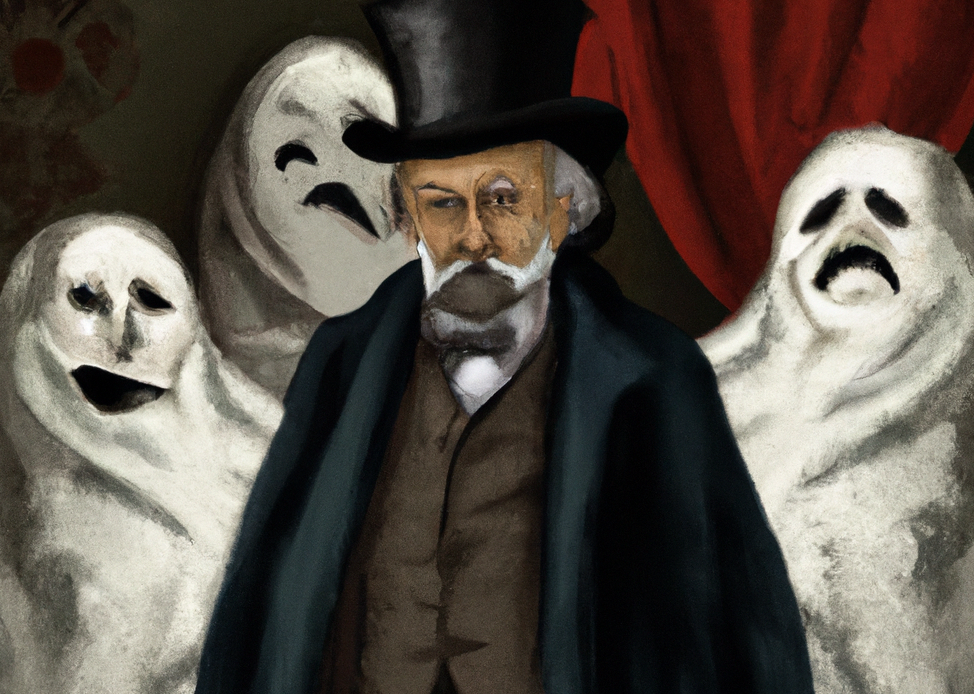According to a federal body in charge of Canadian human rights law, if you celebrate Christmas (or any other Christian holiday), then you might be intolerant and perpetuating “settler colonialism.”
Why do I say this?
The Canadian Human Rights Commission (CHRC) recently published a taxpayer-funded report discussing anti-racism in the workplace. It describes Christmas and Easter holidays as a form of discrimination and religious intolerance. The report goes on to say that if Canada wants to end such intolerance, the nation must understand “how it persists, in what kinds of structures or practices it shows up and how it affects people’s lives.” It naturally goes on to target its enemies and to exalt the left’s chosen victim groups, all in the name of freedom and equality:
No one is free until we are all free…. Many societies including our own have been constructed in a way that places value on certain traits or identities to the exclusion of others, for example white, male, Christian, English-speaking, thin or fit, not having disability, heterosexual and gender conforming. Because of this many people are facing various forms of discrimination.
The report’s release comes on the heels of the Canadian Armed Forces issued directive prohibiting chaplains from reciting religious prayers and mentioning God during official public ceremonies, including Remembrance Day. The report claims that since “Statutory holidays related to Christianity, including Christmas and Easter, are the only Canadian statutory holidays linked to religious holy days, they are discriminatory.”
According to the CHRC, Canada has a long history of religious intolerance which is “deeply rooted in our identity as a settler colonial state.”
The war on Christmas is nothing new. It begins around the same time each year, when stores start peddling plastic Christmas trees and giant Santa Clauses. The war is a subversive effort by leftists to erase all traces of Christianity in Canadian society. But most Canadians do not seem to realize that the battle to keep Christmas goes back many centuries.
The Puritans were Protestant English Reformists who gained distinction in the 16th and 17th centuries. After King Henry VIII broke away from the Church of Rome to found the Church of England, Puritans looked to further reform his new church.
For centuries, people had been celebrating Christmas by going to church, closing businesses, singing carols, and enjoying goblets of wassail with family and friends. Since most people in medieval England had little to celebrate, they looked forward with great anticipation to the Christmas season and to having a break from their daily toils and tribulations.
But the Puritans held a contrary view of the matter. They believed that life must be lived in strict accordance with the Holy Bible. The Bible references no celebration of the Nativity—let alone drinking and merrymaking. Consequently, the Puritans lobbied to ban Christmas celebrations. And, in 1642, King Charles I agreed to make Christmas a subdued period of fasting and spiritual reflection instead of a festive holiday. In 1645, parliament produced a Directory for the Public Worship of God, laying out new rules of worship. Sundays were set aside for worship, but all other church services, festivals, and religious revelries—including Christmas—were prohibited. In 1657, parliament made it illegal to close businesses on Christmas and to attend Christmas services. English commoners, however, decided that they would not let go of their traditions without a fight. Riots ensued and many commoners celebrated Christmas privately.
After the Puritanical Oliver Cromwell ordered the execution of King Charles I, and Cromwell became the Lord Protector of England in 1653, he upheld the Christmas ban despite its unpopularity.
But when the monarchy was restored in 1660, so was Christmas. Some Puritans, unhappy with the Church of England, emigrated to the New World.
It took the enormous popularity of Clement Moore’s 1823 poem A Visit from St. Nicholas with its famous opening lines “Twas the night before Christmas, when all through the house, not a creature was stirring, not even a mouse,” to spark a new marriage of the religious and secular sides of Christmas.
As Christmas was popularized since then, it also became more commercialized. Christians and non-Christians alike trimmed Christmas trees and expected visits from Santa Claus and shopped for Christmas gifts for family and friends. Despite the commercialization of Christmas, it was still considered a religious holiday for much of the 20th century. Over the past decade or so, secularists, humanists, and atheists became increasingly vocal about the separation of church and state at Christmas time.
Multiple lawsuits were filed by private citizens, and the CHRC and other organizations urged federal and local governments to remove nativities and other Christian symbols from public spaces. Legal action has been taken to remove Christian references, songs, and the word “Christmas” from school plays and programs. Many Christians justifiably consider this an attack upon their freedom of speech and their religious liberty. They assert that nations like Canada and the U.S. were founded upon Christian principles and that Christmas is a national holiday celebrating the birth of Christ, so that Christian displays at Christmas ought to be left alone.
Today, in your neighbourhood, there is posted on the marquee at local schools, signs saying “Winter Break.” Why is it not “Christmas Break”? The answer is that everything Christmas is under attack. It is no longer politically correct to greet folks with “Merry Christmas.” Now, the proper greeting is “Happy Holidays.”
From whence does this foolishness come?
It is fabricated and forced upon society by a group commonly known as “the left.” The left-right political dichotomy classifies political positions and ideologies. The left and right are presented as opposed. In France, where the terms originated, the left has been called “the party of movement” and the right has been called “the party of order.” In our country, the “party of movement” is often called progressive as it seeks to destroy 2000 years of Christian tradition.
So why does the left look to destroy Christmas?
The answer is because the left opposes a celebration of the birth of Christ. The left hates Jesus. Leftists view Christians and Christianity as their enemy. They are correct in seeing Christianity as their primary ideological and political enemy. The only organized opposition to them has traditionally come from traditional Christian communities.
Leftism is a secular religion believing that all other religions are immoral and false. From Marx, to Lenin, to the CHRC, the left has regarded religion, in general, and Christianity, in particular, as “the opiate of the masses”—a drug that dulls us into accepting our oppressed condition that prevents the coming revolution. The left understands that the more followers of Christianity, the less chance it has in gaining power. What it does not recognize is that Christianity gives hope to the hopeless. In this way Christianity is powerful and can topple governments, even leftist governments.
Strangely, the left perceives Islam as an ally in the war against Western civilization. The left knows that confronting zealous Muslims will be fatal while persecuting religious Christians who are bound by the Lord’s Second Great Commandment entails no such risks. Leftists do not want a fair fight; they want to bully those who have been called to live a life of peace.
The CHRC regards Christianity as an intrinsic part of the Canadian national identity—one which it seeks to erode in favour of a global citizenship. The left has not only declared war on Christians, but it has also undermined other national identity defining holidays as well, especially Canada Day and Thanksgiving.
The left especially hates Christmas because left-leaning people are joyless. Whatever and whomever the left influences have less joy in life. No one has ever met a happy leftist. They are guided by the forces of darkness and unable to see any light or beauty in God’s Kingdom. Nothing stops them from the war on Christmas.
The “inclusive” objection raised by the CHRC report is patently absurd.
On December 25th, Christians in Canada and around the world will celebrate Christmas, the birthday of Jesus of Nazareth, called the Christ. To us Christians, Jesus is the one to whom we owe our ultimate allegiance—not to the state or some other secular power—but to the Heavenly Power. If Jesus is our Lord, then no secular ruler can be; if Jesus is the way, the truth, and the light, then salvation comes from Christ and not from Ottawa or the Human Rights Commission.
With this thought in mind, all of us at the Frontier Centre, Grey Matter, Return to Reason, and the Miracle Channel, wish you all a Happy and Blessed Christmas. Celebrate it with Peace and Joy, Faith and Family, Prayer and Reverence, because it is a celebration of our freedom and an acknowledgment of its Heavenly source.
Leighton Grey is a Senior Fellow with the Frontier Centre for Public Policy. He is also Creator & Host of The GreyMatter Podcast.



